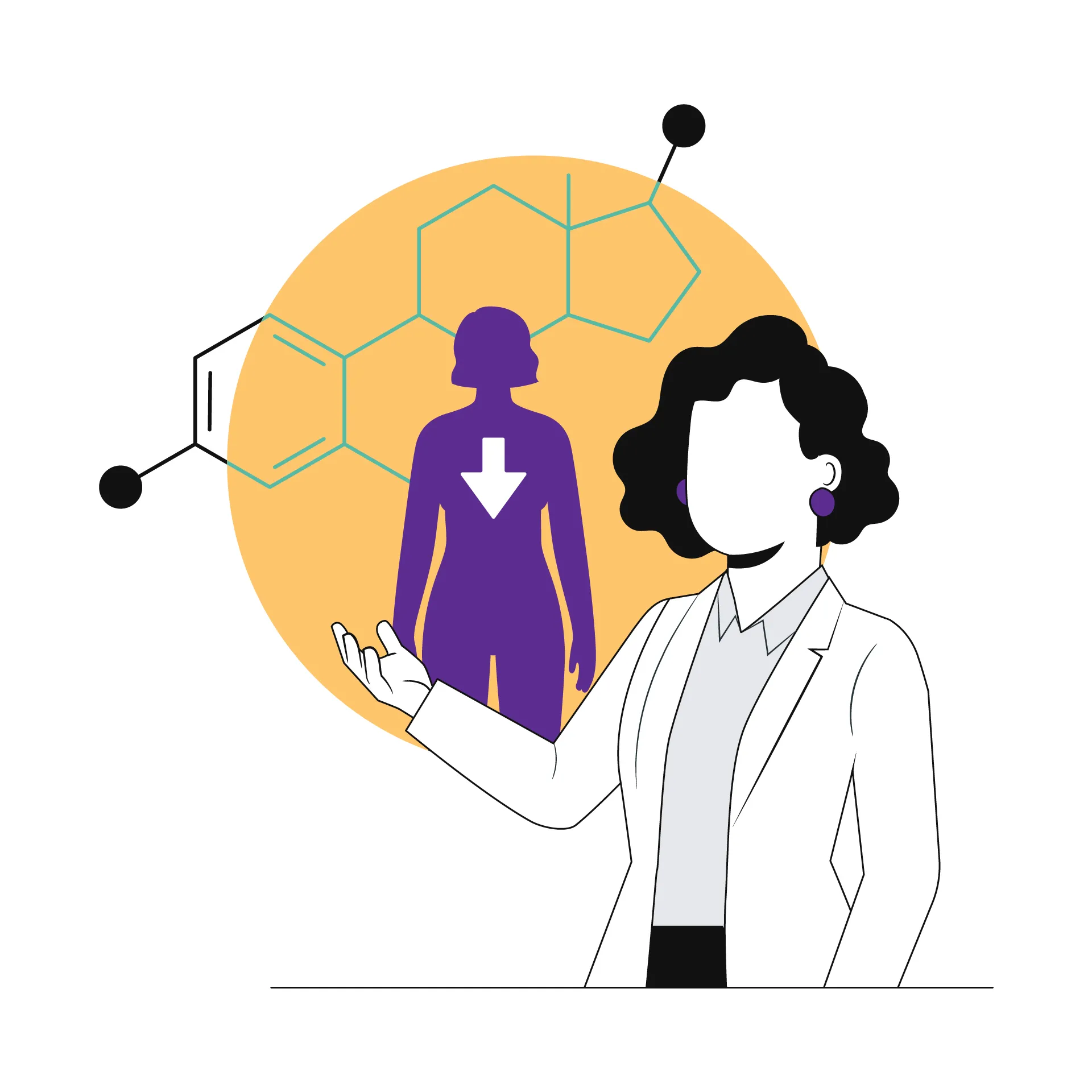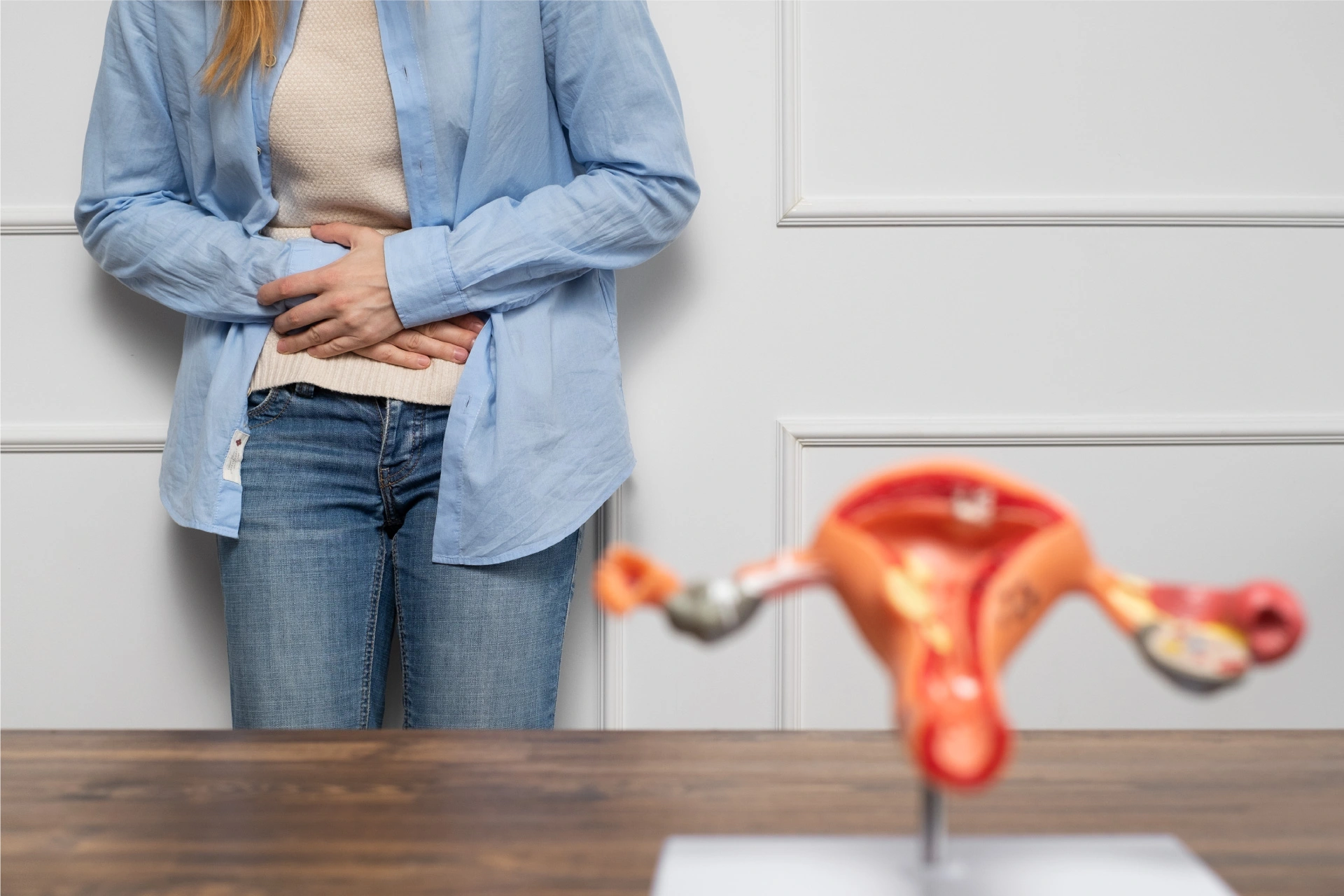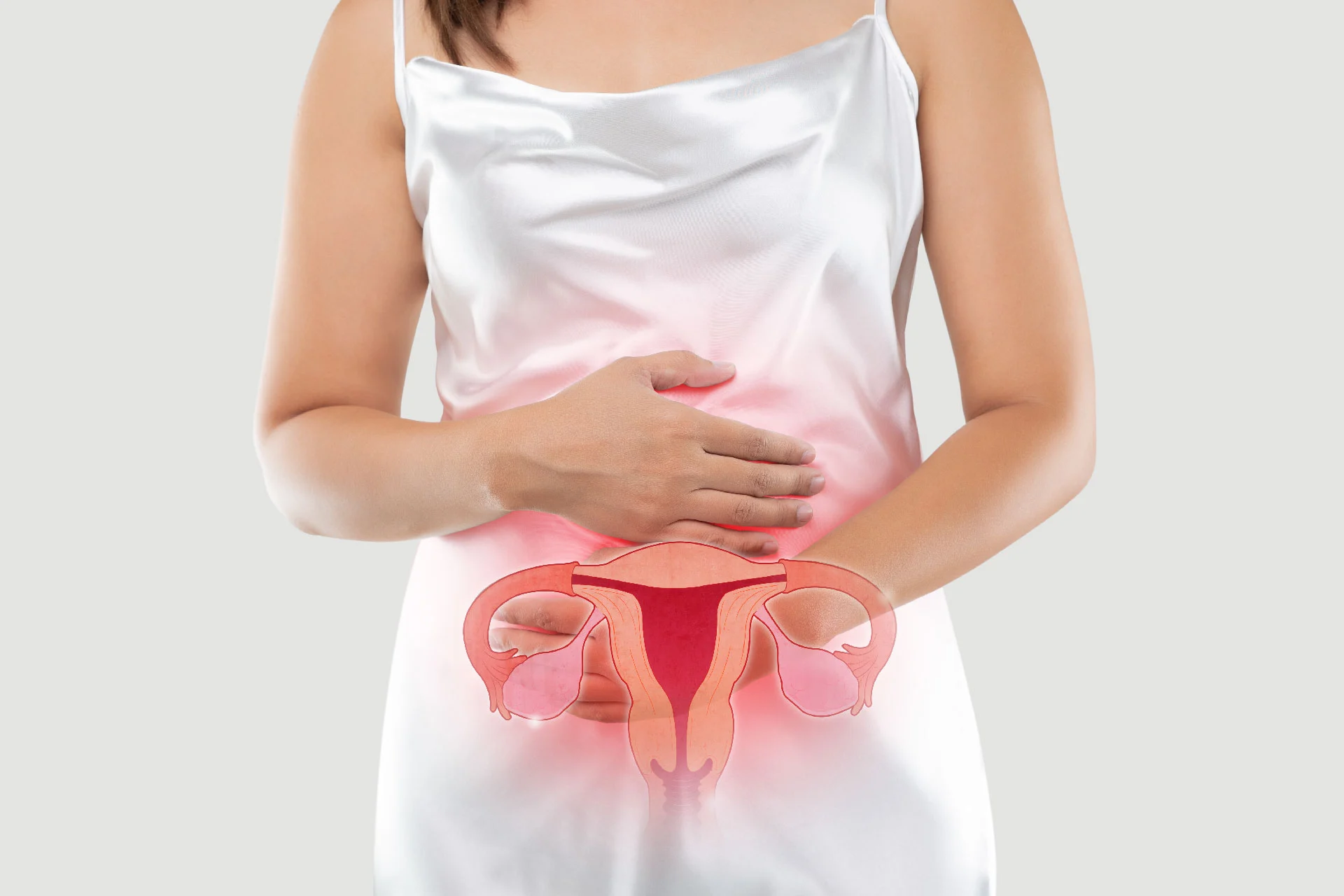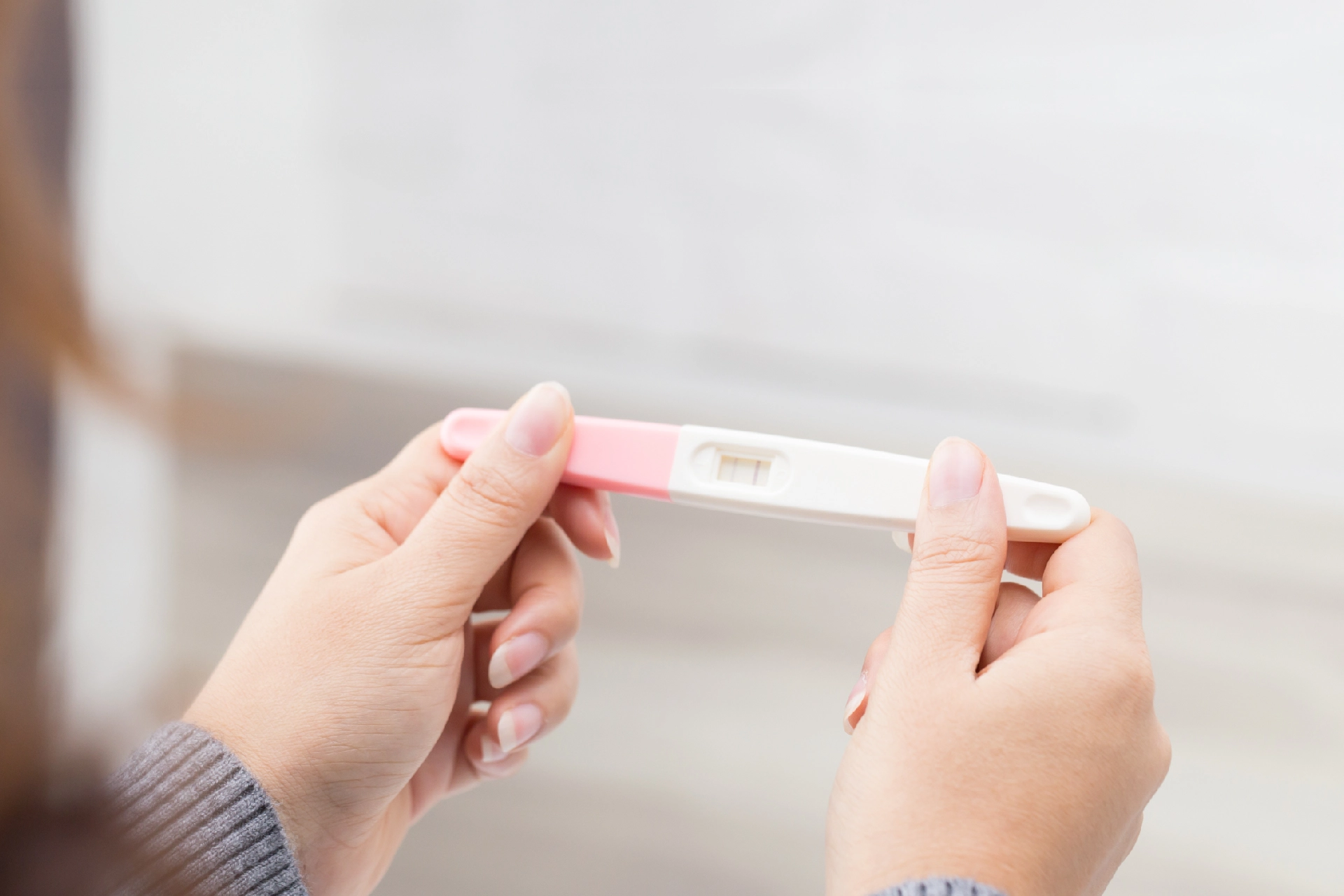Gynaecologist and Obstetrician | 7 min read
Low Estrogen Levels: Symptoms, Diagnosis and Treatment
Medically reviewed by
Table of Content
Synopsis
Women of all ages may experience a number of symptoms due to low estrogen levels. Treatments are available to help relieve the symptoms and improve the quality of life. Identifying low estrogen symptoms is essential to the treatment of this condition. If you are experiencing any of these symptoms, it’s best to see your doctor as soon as possible.
Key Takeaways
- The most common low estrogen symptoms include hot flashes, depression, weight gain, etc.
- Some causes for low estrogen include ovarian cancer, breast cancer treatment, etc.
- A blood, saliva, or urine test is done to detect low estrogen levels
What could low estrogen symptoms mean? First, it is important to know what low estrogen levels could lead to. Here are a few of the most typical low estrogen symptoms in females:
Low Estrogen Symptoms In Females:
Hot Flashes
This sudden feeling of heat typically occurs when you're exposed to cold temperatures. It can be accompanied by sweating, shivering, and other symptoms like anxiety, chest pain, and shortness of breath.
Night Sweats
Low estrogen symptoms could lead to night sweats. These are episodes during which you wake up at night because your body produces excessive amounts of sweat from your skin or surrounding tissues all over your body.
More Low Estrogen Symptoms:
If you are experiencing low estrogen symptoms, it is important to know the underlying cause. In addition, prolonged low estrogen symptoms can lead to other complications if not treated properly. Some of these complications include:
- Mood swings – Some women experience mood swings due to low estrogen levels
- Hot flashes – Hot flashes occur due to low estrogen levels and may be accompanied by sweats or anxiety
- Depression – Studies have shown that women who have low levels of estrogen tend to suffer from depression more often than those who have higher ones
- Weight gain – Studies show that women with high levels of male hormones may gain weight easily because their bodies need more calories than normal individuals' do [1]
- Brittle bones – Estrogen works with calcium and vitamin D to keep bones strong. Low estrogen levels hinder this process.

Low Estrogen Level Causes:
Menopause
Menopause is the cessation of menstruation. This usually occurs in women between 45 and 55, although it can occur at any age. Low estrogen levels are more common than high ones among older women. In fact, up to half of all postmenopausal women will have low levels at some point in their lives! [2] This happens because as we age, our bodies start to produce less of these important hormones due to natural changes taking place inside us, which can lead to low estrogen symptoms - namely, increased fat tissue in our breasts and hips (which blocks the production of specific proteins needed for hormone production) as well as decreased activity from our ovaries themselves which leads them closer towards becoming dormant altogether.
In addition to the physical low estrogen symptoms associated with menopause, such as hot flashes, night sweats, vaginal dryness, and insomnia, many women also experience emotional changes during this time.
Many women report feeling irritable and moody due to low estrogen levels, making it difficult for them to perform daily tasks well. In some cases, feelings of depression may develop because of these low estrogen symptoms, which may lead to suicide attempts or abuse of alcohol or drugs, which has also been reported by some women experiencing this condition. [3]Breast Cancer Treatment
Low estrogen level symptoms in females are a common problem for those undergoing breast cancer treatment. The treatment will increase the amount of estrogen in your body, but sometimes this can result in low estrogen levels.
The leading cause of low estrogen is that the hormone is blocked from being produced by the ovaries. This is because radiation therapy and other treatments used to treat breast cancer interfere with how the ovaries make estrogen. As a result, the ovaries stop producing it, so it's less likely to enter the bloodstream.
Ovarian Cancer
Ovarian cancer is when malignant cells develop in the ovaries. These cells can cause inflammation and block blood flow to your ovaries, which results in low estrogen levels. This can lead to low estrogen symptoms like hot flashes, night sweats (also called nocturnal hypomenorrhea), vaginal dryness or pain with intercourse, infertility, and lack of desire for sex.Ovarian cancers are usually caused by gene mutations that control cell growth and differentiation. These mutations occur during cell division and growth, so they can't be avoided or cured using standard treatments like chemotherapy drugs or radiotherapy.

Thyroid Disease
Thyroid hormones control estrogen. If one has thyroid disease, the body may not be able to produce enough estrogen, which can lead to low estrogen symptoms, as mentioned earlier. This means that the person might have regular but light or infrequent periods. She might also have irregular periods or periods with unusual bleeding patterns.
Ovarian Failure
It is when your ovaries stop producing enough estrogen for you to be able to menstruate and have periods at all (if this happens after menopause, it's called primary amenorrhoea). This can occur due to surgery or radiation therapy for breast cancer, but it also happens in other situations like pregnancy.Also, it can happen with older women who had their ovaries removed due to medical reasons. In these cases, nothing can be done except wait until the body starts making its levels back up naturally over time.
Additional Read: Bladder cancerDiagnosis of Low Estrogen
Low estrogen can be diagnosed through low estrogen symptoms and by the following tests:
- A blood test: It measures the level of oestradiol and estrogen in your blood. The levels of estrogen hormones are higher in women than men, but they're usually normal in postmenopausal women who have had a hysterectomy or other surgery to remove their ovaries
- A urine test: It looks at dehydroepiandrosterone (DHEA) and its sulfate (DHEAS) levels. It can help determine whether you have polycystic ovary syndrome (PCOS), a hormonal condition that causes infertility and acne-like skin problems as well as high blood pressure and obesity—but it doesn't mean you're low on testosterone!
- A saliva test: It measures hormones produced by your adrenal glands. If you do not produce enough cortisol or DHEA-S from these glands, this could indicate excessive inflammation caused by poor diet choices
Treatment for Low Estrogen Levels
If you have low estrogen levels, it could lead to low estrogen symptoms. But there are several ways to treat them. Hormone replacement therapy (HRT) is the most common treatment for women with low estrogen levels and can help alleviate low estrogen symptoms such as hot flashes and mood swings. HRT comes in many forms - pills, patches, creams, or gels applied to the skin daily; injections once a month; or vaginal rings are worn inside the vagina overnight.
Another option is a medication specifically targeting your body's production of hormones like progesterone and testosterone. This treatment may help relieve low estrogen symptoms without affecting your natural hormone balance too much—a benefit if you're trying to conceive naturally or aren't ready yet for surgery or implants like IUI (intrauterine insemination).
Medications that promote ovulation may also be helpful when considering IVF options down the road.
Additional Read: Hormone Tests for FemalesDiet And Lifestyle Tips For Dealing With Low Estrogen
Avoid Trans Fats
Trans fats are found in many processed foods, including margarine and other fried or baked goods. They're also found in some fast-food items like French fries and hamburgers. It is wise to avoid them to not experience low estrogen symptoms.
Eat More Vegetables
Vegetables are a good source of estrogen-boosting phytoestrogens (plant estrogens) like boron; they can help balance your hormones while also increasing your fibre intake, which helps prevent constipation and low estrogen symptoms.
Eat Soy Products
Eat more soy products regularly if you're trying to increase your estrogen levels naturally.
Eat Fish
Eat fish at least twice per week as part of a varied diet that includes whole grains, nuts, and seeds.
Additional Read: What is the Best Multivitamin for WomenIt's important to remember that low estrogen is a common problem, and there are many ways to improve your health by taking steps to raise your estrogen levels. If you experience low estrogen symptoms, it's best to get them diagnosed and treated as soon as possible.
Now, you can do that online yourself with the help of Bajaj Finserv Health! Get a doctor consultation from the comfort of your home and get all the advice you need. With the convenience and safety this offers, you can start taking the best care of your health!
References
- https://pubmed.ncbi.nlm.nih.gov/9929857/
- https://www.menopausenow.com/postmenopause/articles/how-do-hormone-levels-change-post-menopause
- https://www.medicalnewstoday.com/articles/321064#:~:text=Potential%20symptoms%20of%20low%20estrogen%20include%20irregular%20periods%2C,of%20the%20main%20hormones%20driving%20the%20menstrual%20cycle.
Disclaimer
Please note that this article is solely meant for informational purposes and Bajaj Finserv Health Limited (“BFHL”) does not shoulder any responsibility of the views/advice/information expressed/given by the writer/reviewer/originator. This article should not be considered as a substitute for any medical advice, diagnosis or treatment. Always consult with your trusted physician/qualified healthcare professional to evaluate your medical condition. The above article has been reviewed by a qualified doctor and BFHL is not responsible for any damages for any information or services provided by any third party.



